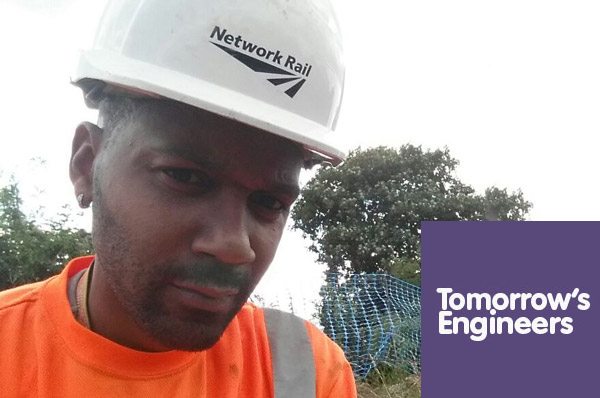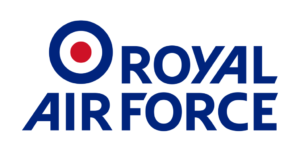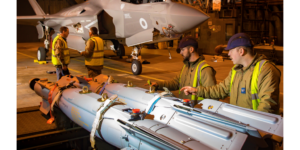
Rail Engineering Technician careers guide & job profile
What Is A Rail Engineering Technician?
Rail engineering technicians install and look after the mechanical and electrical systems on trains. Lighting? Computer systems? No problem – you’re a bright spark who can fix it all. People at the very top of the railway – like the CEOs and heads of department – often started out on the railway in junior positions. If you like the idea of an engineering career, the railway is a fantastic place to get started because you will receive loads of training, personal development and support – and a salary, of course.
You’ll get to handle power tools and even welding equipment, so you can add welder skills to your CV. You’ll follow the technical drawings of engineers and turn them from a piece of paper into reality. You’ll mostly be working in a rail depot or engineering workshop, so this is a very hands-on side of logistis and engineering careers. These are usually quite sociable places so you’ll get to meet and work with interesting people from all walks of life, too.
What Does A Rail Engineering Technician Do?
- Following technical plans drawn up by engineers
- Using hand and power tools, including welding kit
- Helping to build new carriages and engines
- Fitting out carriages with lighting, control panels and communication systems
- Inspecting roofs, undercarriages and bodywork for wear and tear
- Repairing/replacing parts
- Checking that brakes and couplings work properly
- Dismantling, testing and reassembling mechanical, electrical and pneumatic systems
- Writing reports
- Updating maintenance records
How Much Money Can You Earn As a Rail Engineering Technician?
These LMI Job Trends give you a sneak peek of how much you could earn starting out for this career, and how much your salary could grow with experience.
Average salary for rail engineering technician jobs
Recent labour market information says you can earn £18,000 – £35,000 a year on average when working in rail engineering in the UK.
Your starting salary can vary because of factors like level of experience, training, or location. Your salary as a rail engineering technician will increase over time as you build skills, knowledge and experience.
Your Personal Journeys
<Tyrone’s railway engineering apprenticeship put his career on track!
What Qualifications & Training Do You Need For Rail Engineering Careers?
School, College And Training
Your qualifications are less important than your willingness to get stuck in and do hands-on work with machinery and equipment in this job.
In your GCSEs or the equivalent, aim to get passing grades of 9-4 (A*-C) in maths and at least one science. This is because it will give you more chances to take your starting engineering career in different directions as you find out what parts of the job you enjoy doing most.
You can then go on to take at least one A-level or equivalent qualification in a topic related to science, engineering or maths, but it’s not a requirement.
Rail Engineering Apprenticeships
There are all kinds of railway engineering apprenticeships available, at different levels to suit your level of education. Young engineers are in high demand so if you’re keen to learn potential employers will love to hear from you.
You can seek out civil engineering apprenticeships with organisations like Find an Apprenticeship.
Rail Engineering Career Path And Progression
With time and experience you will pick up work-based qualifications in testing, maintenance, installation and personal track safety. You could go on to take on a senior management position like being a maintenance team leader or engineering workshop manager.
Rome wasn’t built in a day and a career can’t be built in a day, either. When you’re ready and if you want to, you can also explore doing further training by doing an HNC/HND, foundation degree or degree to become a mechanical engineer or electrical engineer.
What Work Experience Do You Need For Rail Engineering Careers?
Work Experience Tips
Remember how we said the railway often promotes people from the inside, so you can work your way up in the company? Well, railway employers will love to see if you’ve already got work experience and qualifications as a mechanical fitter, electrician or craftsperson. It helps if that experience is with a rail engineering company – although it doesn’t always have to be.
Any work experience where you have demonstrated your engineering and/or mechanical skills can help your application.
Examples of relevant work experience include:
- Work shadowing (even if it’s just for a day)
- Work placements in a company
- Work placements on a degree course
- Year in Industry work experience programme for pre-university/undergraduates
Volunteering Tips
Volunteering is an excellent way to build up your skills and CV while making connections with people and organisations who could help you in the future.
If you’re still at school, you can work on your engineering skills outside of lessons to build your first CV. One way is to join a school STEM club.
If you’ve done a car maintenance course or helped out with fixing the family car, that can help you decide if you enjoy working with machinery – and it can help show employers you deserve your first taste of engineering/mechanical work experience, too.
Skills You Need To Become A Rail Engineering Technician
Useful skills to put in your CV for rail engineering technician jobs:
- Good problem solving skills and an enquiring mind – you will use mechanical skills, electrical skills and a bit of common sense and logic to make improvements on the railway.
- Good organisation skills – a good work person never blames their tools, so you will always pay attention to the state of your kit on the railway, as well as very important health and safety regulations. You are working with electricity, after all.
- Teamwork skills – you will be working in a team taking guidance and direction from a line manager who knows the job inside-out. Soak up what they know, and aim to stay positive in the workplace! As you progress in your career, you’ll also build leadership skills and could end up in a manager role.
- Good communication skills – you will work closely with all kinds of people including carpenters, painters, upholsterers, sheet metal workers and managers. Everyone needs to know how the work is getting along and what part they play in the project. Communicate how you’re doing to those that need to know, and listen to the insights of experienced people.
How do you get these skills?
Vocational qualifications and work experience will help you build these skills over time.
Build Your Skills With the FREE Young Professional Programme
How To Find Rail Engineering Technician Jobs: Next Steps
To find jobs for young people in this role, search on job boards for rail engineering jobs with these words in the title:
- Rail engineering technician
- Rail engineering apprenticeship
- Rail engineering apprenticeship
- Rail engineering early careers
These Youth Friendly Employers offer great opportunities
These Youth-Friendly Employers might be able to help you get great rail engineering jobs, training or experience! Take a look.

























Logistics Career Tips & Opportunities
Transport and Logistics Career Guides
View job descriptions with average UK salary, useful qualifications and a variety of routes into this career.
Resources And Links
- Find an Apprenticeship
- Tomorrow’s Engineers
- Women into Science, Engineering and Construction (WISE)
- Autocity – info about careers in the motor industry
- SEMTA (includes info on engineering and manufacturing apprenticeships)
Engineering Career Tips & Opportunities
Engineering & Manufacturing Career Guides
View job descriptions with average UK salary, useful qualifications and a variety of routes into this career.
YES! I Want More Free Careers Help...
So what are you waiting for? Grab your future.






































